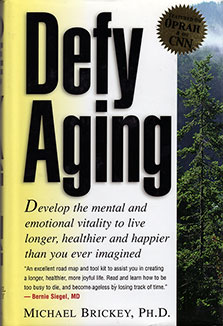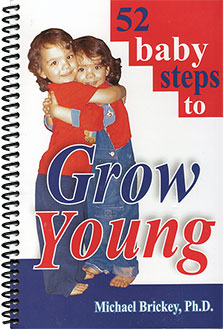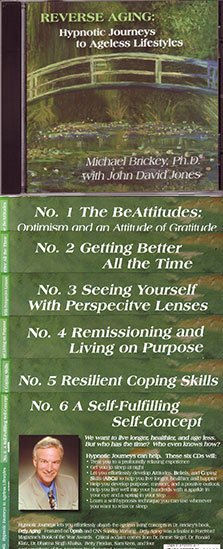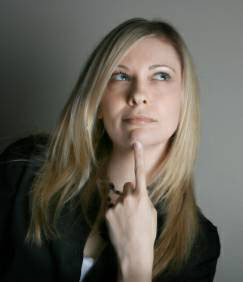Anti-Aging Psychology
Michael Brickey, Ph.D., ABPP
What is Anti-Aging Psychology?
Studies comparing fraternal and identical twins finds that only 20-30% of longevity is genetic. Thus, 70-80% of longevity depends on what we think and the lifestyle choices we make. Certainly nutrition, physical activity, and even being fortunate not to be injured in an auto or other accident affect how long and how well people live. One of the biggest factors is psychological—Attitudes, Beliefs, and Coping Skills (Anti-Aging ABCs®).
Examples of attitudes include optimism, gratitude, having a sense of purpose, and embracing lifelong learning and change. Examples of beliefs include thinking of oneself as youthful, believing in making new friends all your life, and expecting to enjoy living a very long, healthy, happy life. Coping skills include dealing well with change, loss, and death, making intimate relationships work or dealing well them ending, and continually renewing one’s purpose.
Anti-aging psychology draws upon traditional psychology, positive psychology, and studies of centenarians to identify what fosters living longer, healthier, and happier. Rather than “aging gracefully,” the goal is to help people live well into their hundreds with vitality, purpose, and passion.
The average U.S. lifespan jumped from 47 years to 86 years in the last century. Science, particularly genetic engineering and tissue engineering are likely to continue to bring huge gains in longevity. Anti-aging psychology needs to help by helping people redefine how they think about aging,retirement, and purpose in life.
Anti-aging addresses how to prevent, slow, or reverse the effects of aging. It includes scientific research and applications in geneticengineering, tissue engineering, and other medical advances, e.g., finding treatments and cures for Alzheimer’s disease. It includes anti-aging psychology, e.g., attitudes, beliefs, and coping skills for resiliently handling change, stress, and aging.
The anti-aging marketplace includes nutrition, physical fitness, skin care, hormone replacements, vitamins, supplements, and herbs. Alternative medicine and holistic approaches have often been an incubator for approaches initially shunned by traditional medicine. Leading sources of anti-aging information include the Life Extension Foundation (focusing on research and supplements), the American Academy of Anti-Aging Medicine (focusing on physicians and cutting edge treatments), Andrew Weil (focusing on alternative and holistic medicine), and the Ageless Lifestyles Institute (focusing on anti-aging psychology).
A Brief History of Anti-Aging Psychology
Gerontologists have tended to paint a bleak picture of aging being all downhill with increasing loss of skills, functions, and quality of life. Women’s movements leaders, e.g., Betty Friedan’s book The Fountain of Youth and books like Gail Sheehy’s Passages helped paint a more positive, generative template for aging.
Around the year 2000 research started identifying strengths that go with aging. For example, Daniel Mroczek, Ph.D., found that older Americans report being happier than younger people. He found that at ages 18-27 only 28% reported being very happy. The rates go up with the age brackets with 38%. reporting being very happy at ages 68-77. (The rating does dip to 34% at ages 78-89) Other researchers found that seniors tend to be better story tellers and become more agreeable and conscientious with age. Laura Carstensen, Ph.D reports that as people grow older they tend to be more positive and in better control of their emotions.
George Valliant, Ph.D., and subsequent researchers have followed Harvard freshmen in the classes from 1939-1949 periodically to the present. One especially notable finding was that men who had traits such as optimism and humor as freshmen were less likely to develop chronic illness or die by age 45. The difference was even more pronounced at age 60.
Anti-Aging Psychologist Dr. Michael Brickey’s book Defy Aging brought together the research, theory, and how to for living longer, healthier and happier. While holistic, the emphasis was on the Anti-Aging ABCs®. Since many people don’t have time to read books, he wrote 52 baby steps to Grow Young so people could get the benefits by just reading two pages a week. He developed a set of six Reverse Aging hypnosis CDs to take the ageless concepts to people’s unconscious minds. His free fifty-minute interviews with leading anti-aging experts are archived at https://agelesslifestyles.com). His continuing education courses for psychologists, social workers, counselors, and nurses are at https://www.zurinstitute.com/.






